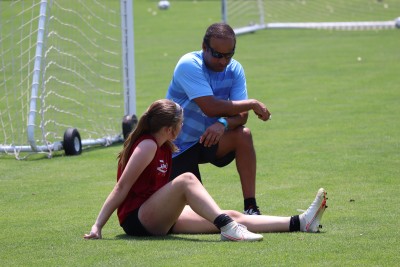This blog will help young parents navigate the world of youth soccer.
Everyone should always do their research and learn more about how youth club coaches in this country are structured.
Also, every youth club in the country will say the right things, such as: Development, mental training, building self-esteem, we care” etc. But in the end, coaches are responsible to inspire your child to love the game and improve their skill.
Before going into a club, try to understand the type of coaches there are.
Here is the most common coaching structure that most parents will come across:
Amateur youth coach, amateur college coaches, & Professional.
Amateur youth club coaches:
At this level, it should be purely developmental. Here, kids will find inspiration to reach their full potential as soccer players. The youth club is the first step to loving the game, but only if the child receives the proper attention.
These coaches will teach young athletes new tactics new ideas, mentor them, and help athletes become mentally solid & confident. They learn to be leaders, overcome difficulties, compete and elevate their communication skills. DEVELOPMENT is the ONLY FOCUS.
NOTE:
Outside the US, youth club coaches are judged by the number of players they have developed & gone into the professional leagues. They are not judged by winning records or whom they know.
Amateur college soccer coaches:
Yes, college coaches are still amateurs; they see their players much differently than youth coaches. College coaches’ job depends on 18 yr old kids they recruit. Therefore, expect high pressure on athletes almost immediately when they arrive at college. Also, the pressure will vary according to Divisions (D1, D2, D3). Regardless of what you have heard in the past, there is no time for development in college. Players need to be ready to go from day 1.
NOTE:
College coaches can spend years coaching at the same university and never win a single national title, but as long as they have winning seasons, their jobs are “safe.” So the emphasis is on winning as many games as possible per season.

